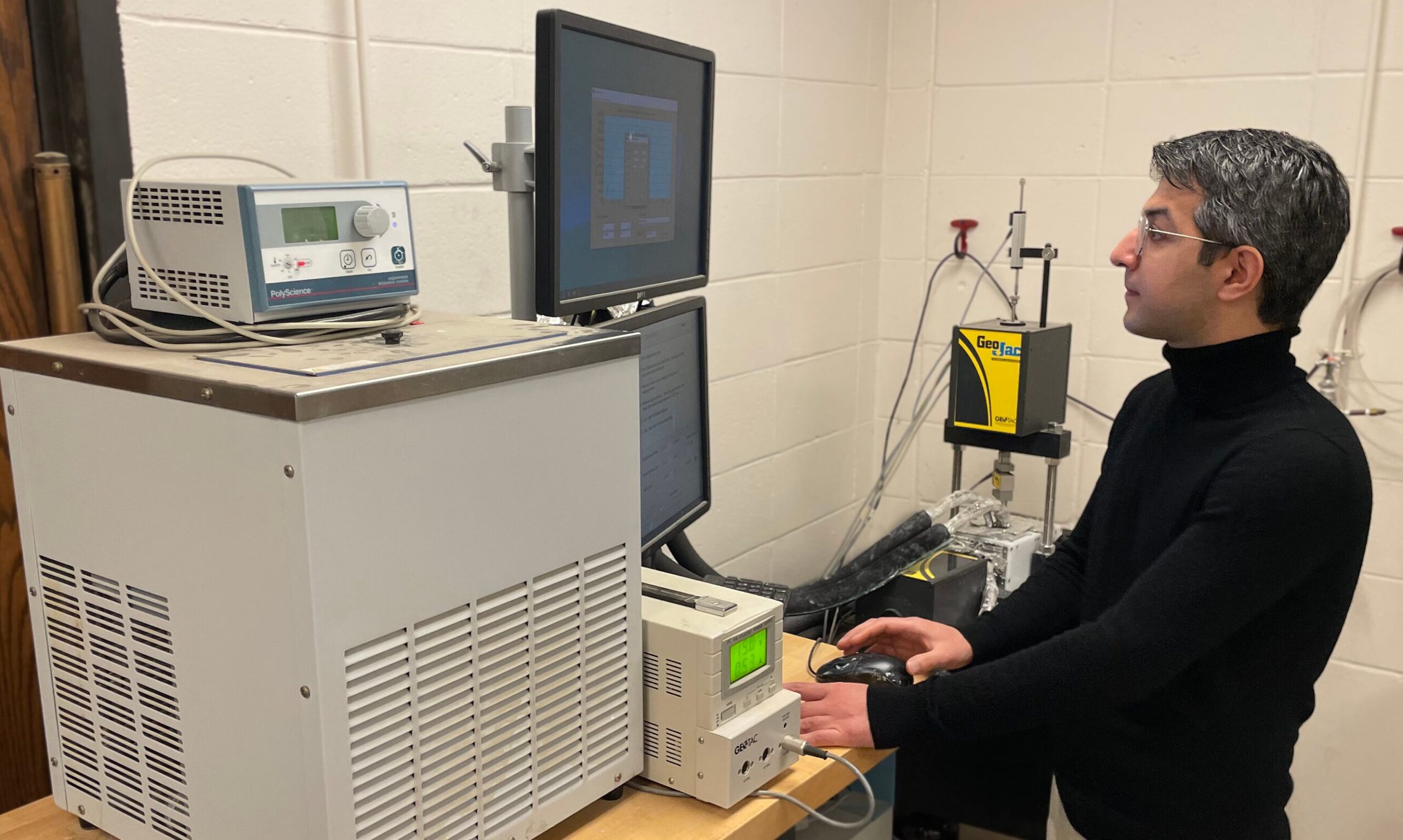A new device to address critical climate change soil impacts.
Author: Anna Keplinger
Author: Anna Keplinger

Part of PhD candidate in geotechnical engineering Hossein Emami Ahari’s research requires measuring the shear strength of soil with a direct shear device. But, to address the effects of temperature change on the strength of soil, he needed to buy an expensive new tool. To combat the monetary barrier of a shear and temperature testing device, Emami Ahari decided to create one.
The process
“Most geotechnical labs have direct shear devices, so adding temperature components to the existing machine would enable more labs to access this tool,” Emami Ahari said.
Emami Ahari started from scratch when he came to Iowa State to complete his PhD. Taking time to design his components on AutoCAD Solidworks, he went to the Machine Shop in the chemistry department on campus to construct his new direct shear box. Pushing cold air in from all dimensions of the soil, Emami Ahari replicated soil research conditions from around the world.
The next challenge was insulating the box. It needed to contain the temperatures so it takes less time and freezes all the way through.
“I don’t know how to explain it, but one night, it came to me in a dream. Like I had thought about it so much that I was telling myself exactly what to do,” Emami Ahari said.
When he constructed the idea that came to him in a dream, the new box worked exactly as he intended, measuring changes in soil strength and temperature.
The impact
In areas like Canada and Alaska, the rising temperatures are leading to permafrost melt, changing the soil strength. Determined in his studies with Professor Beena Ajmera, one of the direct results of the permafrost melting is the deterioration of the infrastructure in the area.
“Pipelines, roads, buildings, and structures are being affected by the soil strength change. Using my device to measure soil strength in different areas easily, we can better predict the impact of permafrost melt, and prepare for those changes,” Emami Ahari said.
The Temperature-Controlled Direct Shear Box supports one of the overall goals of the Department of Civil Construction and Environmental Engineering: building sustainable infrastructures for a better future.
“The lack of access to measuring devices is often a barrier for scholars to dig into temperature-based soil research; they won’t go into the field if they can’t do the work in the beginning. Which is especially hard because the work is so necessary. Communities and their soil are seeing effects from climate change now,” Emami Ahari said.
Recently, Emami Ahari presented his research at the Graduate and Professional Student Senate Conference. His presentation was awarded Third Place in the Oral Category and selected to receive the People’s Choice Award. Work using his device was recently published, read more about his research here.